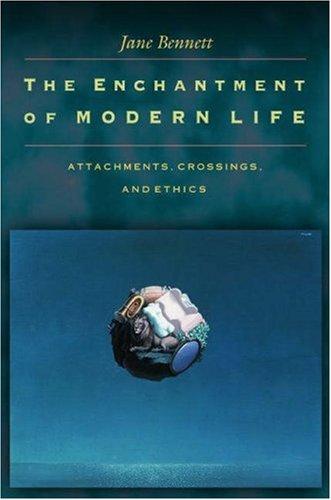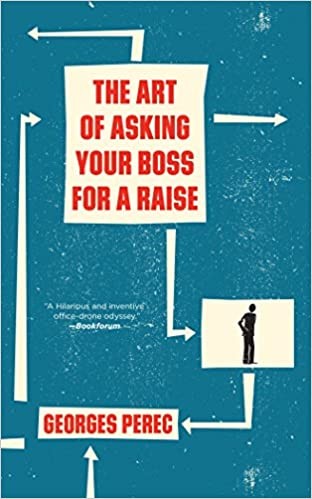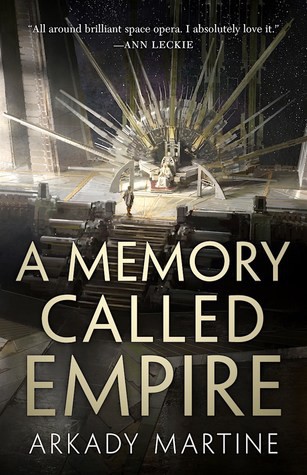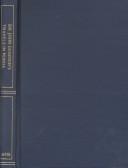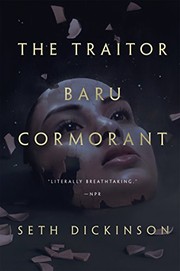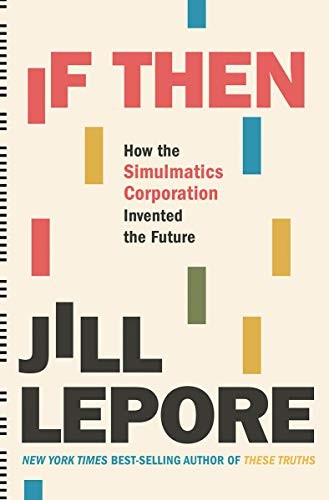This book is the best introduction to Pynchon because it is so short. If you read and don't love it, do not bother with his longer works. If it leaves you wanting more more more... well, time to crack open Gravity's Rainbow.
User Profile
This is where I track and comment on what I'm reading. #nobot
This link opens in a pop-up window
Darius Kazemi's books
View all booksUser Activity
Darius Kazemi reviewed The Crying of Lot 49 by Thomas Pynchon
I spotlight sites of enchantment in order to intensify the experience of them and thus perhaps to erode the belief that an undesigned universe calls above all for a cold-eyed instrumentalism. Such ontological cynicism, it seems to me, is one of the streams that feed political cynicism--liberals who see disenchantment as clearing the way for reason and tolerance come to be cynical about a political sphere that refuses to realize its historical potential, and communitarians who decry disenchantment as the dawn of homesickness come to doubt the ability of politics to induce the kind of spiritual and cultural transformation required to restore the world as a home. But what if the contemporary world is not disenchanted?
A world capable of enchanting need not be designed, or predisposed toward human happiness, or expressive of intrinsic purpose or meaning. It seems that there is a musicological support for this kind of enchantment, for "chant is a modal music, which means that it doesn't have the powerful drive that much of modern music has to arrive at a final harmonic destination." Moreover, the world that I describe as enchanted is not confined to structures, entities, and events in nature; there are also literary, machinic, and electronic sites of enchantment.
This tells us that we do not need to have an anthropocentric world view in order to feel enchantment. In fact we can feel enchantment at feeling insignificant, for example.
Early generated novel
3 stars
This is a 1968 novel by Oulipian Georges Perec. It was authored based on a flow chart (included with the book) and it's in the category of "random walk" style generated novels, with lots of repeated looping sections. It's kind of a slog to read but it's a really cool example of some early generative fiction.
Darius Kazemi wants to read Scatalogic Rites of All Nations by John Gregory Bourke
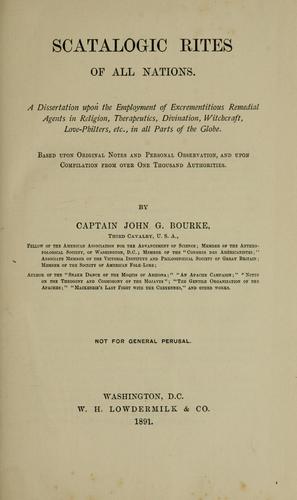
Scatalogic Rites of All Nations by John Gregory Bourke
A dissertation upon the employment of excrementitious remedial agents in religion, therapeutics, divination, witchcraft, love-philters, etc. in all parts of …
If popular psychological wisdom has it that you have to love yourself before you can love another, my story suggests that you have to love life before you can care about anything. The wager is that, to some small but irreducible extent, one must be enamored with existence and occasionally even enchanted in the face of it in order to be capable of donating some of one's scarce mortal resources to the service of others.
Darius Kazemi started reading The enchantment of modern life by Jane Bennett
Darius Kazemi reviewed A Memory Called Empire by Arkady Martine
Fun political intrigue
4 stars
I quite enjoyed this book! A fun narrative about a young diplomat from a remote space station who finds herself appointed ambassador to a Big Evil Empire. The book takes place in the imperial capital and thematically does the whole "man, giant empires really do suck a lot" thing, and does it well. The one Big Weird Sci Fi idea (basically multiple people cohabiting in one brain) is pretty cool and also the author manages to portray it without being offensive to people with, say, dissociative identity disorder. I feel like it dragged a bit at the end and sort of fizzled out, and ultimately I found myself reading a book set on the main character's home space station than at the heart of this big scary empire. I live in a big scary empire so it all seemed pretty standard to me. Still, totally recommend the read.
Darius Kazemi wants to read Just mercy by Bryan Stevenson
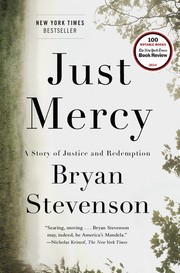
Just mercy by Bryan Stevenson
The founder of the Equal Justice Initiative in Montgomery, Alabama recounts his experiences as a lawyer working to assist those …
Darius Kazemi wants to read Things That Bother Me by Galen Strawson
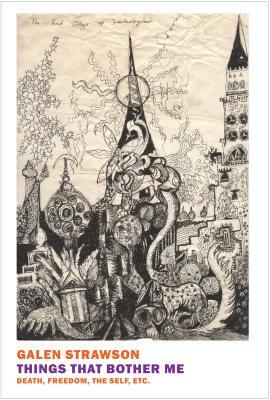
Things That Bother Me by Galen Strawson
An original collection of lauded philosopher Galen Strawson's writings on the self and consciousness, naturalism and pan-psychism.
Galen Strawson might …
Darius Kazemi wants to read The case of the philosophers' ring by Randall Collins
Darius Kazemi reviewed Travels in Persia by Sir John Chardin
One of the better 17th century books I've read
4 stars
So, I read the first book of this multi book series by a Huguenot jeweler recounting his time traveling to Persia in the 1680s. The first half of the book is about his time passing through modern day Turkey and through Georgia and Armenia before getting to Azerbaijan and then into Persia proper. It's incredibly readable and breezy for something published in 1691, though you have to get Used to Randomly Capitalized words and Shoddy Orthography and typesetting where s and f look the same.
The book is half day to day diary, and half digressions on politics and religion and economics and geography. Chardin has reasonable command of English and Persian in addition to his native French. (This book was originally written in French but he collaborated on its English translation.) His understanding of history and etymology is pretty good for someone of his era though there is a …
So, I read the first book of this multi book series by a Huguenot jeweler recounting his time traveling to Persia in the 1680s. The first half of the book is about his time passing through modern day Turkey and through Georgia and Armenia before getting to Azerbaijan and then into Persia proper. It's incredibly readable and breezy for something published in 1691, though you have to get Used to Randomly Capitalized words and Shoddy Orthography and typesetting where s and f look the same.
The book is half day to day diary, and half digressions on politics and religion and economics and geography. Chardin has reasonable command of English and Persian in addition to his native French. (This book was originally written in French but he collaborated on its English translation.) His understanding of history and etymology is pretty good for someone of his era though there is a lot of the usual making-shit-up you find in travelogues.
There are some delightful stories about drunk Muscovite ambassadors and some drama involving philandering court cryptographers somewhere in or near modern Turkey I want to say.
Chardin is a remarkably sensitive and even keeled observer during his travels. I just finished a 1950 travelogue of an Englishman in Iran and it is full of condescension even though the author has the best intentions. But Chardin is writing this before European nations began treating Asian countries as vassal states and playthings. He seems to really consider Persia and its people on equal footing with European nations, and really wants to observe and learn from them.
Anyway, this is a great read if you are remotely interested in early modern Persia, and can be found on the Internet Archive for free.
Darius Kazemi reviewed The Traitor Baru Cormorant by Seth Dickinson
Didn't want to put it down
5 stars
Wow this was one of those "can't put it down" books for me. It's hard to review without spoiling but basically it is a fantasy novel with extremely interesting and incisive things to say about how imperialism works. Most of the action takes place in a federation of dukedoms that is currently being occupied by a big bad Empire. When I looked at the map at the beginning of the book I thought "there is no way I am ever going to remember who these dozen different dukes are and where they sit politically" but by the end of it I was like "oh my god I can't believe Duke So-and-so decided to ally with Duke Whats-her-face! That will have horrific ramifications for petit bourgeois craftspeople!"
Anyway this is one of the best books I've read in years. The human drama is really gripping and it also has left me …
Wow this was one of those "can't put it down" books for me. It's hard to review without spoiling but basically it is a fantasy novel with extremely interesting and incisive things to say about how imperialism works. Most of the action takes place in a federation of dukedoms that is currently being occupied by a big bad Empire. When I looked at the map at the beginning of the book I thought "there is no way I am ever going to remember who these dozen different dukes are and where they sit politically" but by the end of it I was like "oh my god I can't believe Duke So-and-so decided to ally with Duke Whats-her-face! That will have horrific ramifications for petit bourgeois craftspeople!"
Anyway this is one of the best books I've read in years. The human drama is really gripping and it also has left me chewing on all sorts of thoughts about human nature, politics, and economics.
Darius Kazemi reviewed If Then by Jill Lepore
Lots of potential but less than the sum of its parts
2 stars
I am a total sucker for learning anything and everything I can about the mid 20th century think tanks and defense contractors that helped invent American technocracy. And yet I find myself lukewarm on this book at best.
The weakest part of the book is its core thesis: it attempts to make Simulmatics, a short-lived company that was far more bark than bite, into a harbinger of the modern data-driven, democracy-destroying privacy nightmare we live in today. The author fails to do this. Oh, she makes the claim that it is a harbinger, many times, but she doesn't show the work, seemingly expecting the reader to go "oh, that sounds similar enough that it must be the same thing."
Simulmatics was a shambles of a company run by a bright-burning PR hack and staffed by scientists who did not seem to be very good at their jobs. They never owned …
I am a total sucker for learning anything and everything I can about the mid 20th century think tanks and defense contractors that helped invent American technocracy. And yet I find myself lukewarm on this book at best.
The weakest part of the book is its core thesis: it attempts to make Simulmatics, a short-lived company that was far more bark than bite, into a harbinger of the modern data-driven, democracy-destroying privacy nightmare we live in today. The author fails to do this. Oh, she makes the claim that it is a harbinger, many times, but she doesn't show the work, seemingly expecting the reader to go "oh, that sounds similar enough that it must be the same thing."
Simulmatics was a shambles of a company run by a bright-burning PR hack and staffed by scientists who did not seem to be very good at their jobs. They never owned any computer equipment, instead renting time on university machines. Among other disasters, the scientists who worked there had a contract with The New York Times for the 1962 midterm election which culminated in them installing a giant, expensive IBM mainframe at the Times offices and then... not knowing how to use the thing. Simulmatics existed during a time that I have spent significant time researching on my own, and I had never heard of them. There is no reference to them in any of my extensive notes on ARPA records from the late 60s and early 70s (granted this was in the twilight of the company). It's pretty clear they were small fries. Interesting small fries but I think a book about the Rand Corporation or SDC would be much, much more suited to the thesis of "this was the harbinger of the Facebook adtech privacy nightmare."
I'll admit, I am coming at this from the perspective of an amateur computer historian. What I see here, mostly, is an author who ran across a really genuinely interesting company called Simulmatics when she was going through the papers of Ithiel de Sola Pool. She says as much that she "began to think there might be a book in those boxes", which is something I've thought many times sitting in archives. Most of the time, there is not a book in those boxes. I think this is one of those times where it should not have been a book. Maybe this is cynical of me, but I think this is a case where Lepore, who friends assure me is usually a much, much better writer than this, was able to convince a publisher based on her sterling reputation and the exquisite timeliness of the subject matter, that there was a book there.
The best thing about the book is its insistence on not erasing women in the narrative of Simulmatics. This includes the detailed stories of several women employed by the company, as well as the wives of the company's founding members. "They treat their wives like dirt" is a refrain in the book, and one Lepore never lets you forget, with good reason. I love her willingness to paint hucksters and abusers and exactly what they are, and the pains she takes to show that a lot of the scientists involved in Simulmatics were blustery fools who literally could not operate a computer unless a highly trained woman was there to run the machinery for them.
One of my favorite things about the book was its portrayal of Ithiel de Sola Pool, one of the Simulmatics founders, who was one of the few people there who seemed to be genuinely good at what he did (unless you count the company founder Greenfield, who was genuinely good at being a huckster). Daniel Ellsberg, the leaker of the Pentagon Papers, knew him very well as they were both in Vietnam at the same time doing overlapping working for the Department of Defense. According to Ellsberg, when Pool learned of the leak he was shocked because Ellsberg would surely lose his security clearance.
"I was expecting to go to prison for the rest of my life," Ellsberg wryly said later, "and Ithiel wanted to know whether I understood that I'd never get another dollar from the federal government."
Oddly, there is a diversion in the middle of the book about Eugene Burdick, an author of political thrillers who had some connection to Simulmatics, and whose last novel was heavily based on their business. Lepore needles him for rushing out half-baked books in the name of timeliness. Ironic, considering I just finished a prime example of that exact phenomenon.



